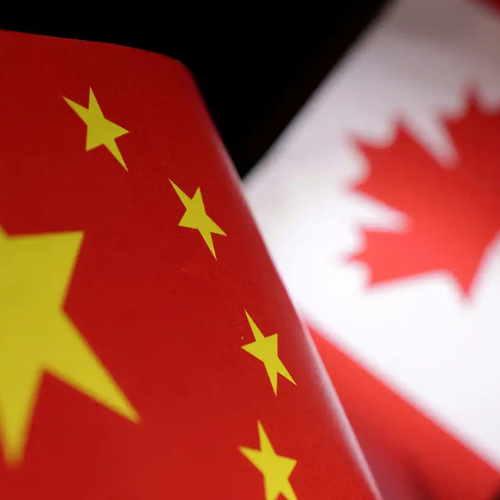In a bold move, China has announced new sanctions against two prominent Canadian human rights organizations. These sanctions are in response to Canada’s recent actions against Chinese officials accused of human rights violations. The sanctions target the Uyghur Rights Advocacy Project (URAP) and the Canada Tibet Committee, along with key figures associated with these organizations. This decision reflects China’s anger over what it considers interference in its internal affairs, particularly concerning the human rights of Uyghurs and Tibetans.
China’s Retaliation: What Happened?
On Saturday, China released a statement via its Ministry of Foreign Affairs, declaring the new sanctions. This decision is seen as a direct response to Canada’s previous sanctions, which were imposed on December 9, 2024. Canada had targeted Chinese officials under its Special Economic Measures Act, accusing them of committing serious human rights violations against minority groups like the Uyghurs in Xinjiang and the Tibetans in Tibet.
The sanctions imposed by China now affect two major Canadian groups that advocate for the rights of these communities. The Uyghur Rights Advocacy Project (URAP) works on raising awareness about the human rights issues faced by the Uyghur Muslims in Xinjiang. The Canada Tibet Committee, similarly, focuses on advocating for the rights and freedoms of the Tibetan people, who live under Chinese rule.
Canada Targets Chinese Officials with Sanctions for Human Rights Violations
Several key figures from these organizations have been directly impacted by China’s retaliation. The sanctions are also aimed at individuals linked to these groups, including legal advisors who have worked on human rights issues related to China. Among those targeted by China’s new measures are directors and policy advocates from the organizations, as well as key figures who have been outspoken about human rights violations in China.
The Impact of the Sanctions
The new sanctions by China are significant, as they are aimed at people and organizations advocating for the rights of ethnic minorities like the Uyghurs and Tibetans. This move by China is not the first time that the Chinese government has responded in this way. In the past, China has imposed similar measures on countries, organizations, and individuals that criticize its human rights record. These retaliatory sanctions are a part of China’s broader strategy to protect its interests and prevent any foreign interference in its internal policies.
However, the organizations targeted by the sanctions are not backing down. Leaders from the Uyghur Rights Advocacy Project and the Canada Tibet Committee have made it clear that the sanctions will not stop them from continuing their work. Despite the pressure, these human rights groups are determined to carry on their advocacy for those suffering under Chinese policies in Xinjiang and Tibet.
Mehmet Tohti, the executive director of the Uyghur Rights Advocacy Project, has publicly stated that his group accepts the sanctions “as a badge of honor.” He emphasized that the sanctions only strengthen their resolve to continue speaking out on behalf of those whose rights are being violated. The Canada Tibet Committee echoed this sentiment, stressing that the sanctions would not stop them from advocating for an end to the harsh treatment faced by Tibetans.
Canada Intensifies Sanctions on Belarus Amid Human Rights Concerns
The sanctions could have serious consequences for the individuals involved, particularly those with family members still living in China. Human rights advocates often face increased pressure from the Chinese government, and those targeted by the sanctions may experience harassment or restrictions on their ability to work.
Canada’s Response to China’s Retaliation
Canada has been firm in its stance on human rights issues, particularly concerning the treatment of Uyghurs in Xinjiang and Tibetans in Tibet. The Canadian government imposed sanctions on Chinese officials earlier in December, citing violations such as forced labor, mass detention, and other forms of mistreatment. These actions were part of a growing international movement to hold China accountable for its human rights abuses.
In response to China’s retaliation, advocates for the rights of Uyghurs and Tibetans have made it clear that these sanctions will not deter their efforts. Human rights defenders argue that these measures are just another attempt by China to silence those who speak out against its policies. They believe that such actions are meant to intimidate and discourage international criticism of China’s human rights record.
Despite the growing tensions between Canada and China, the human rights groups have vowed to continue their work, calling for more global attention on the situation in Xinjiang and Tibet. They believe that sanctions and other retaliatory actions by China only highlight the importance of their advocacy and demonstrate that their efforts are having an impact on the international stage.


